 Petzlover
Petzlover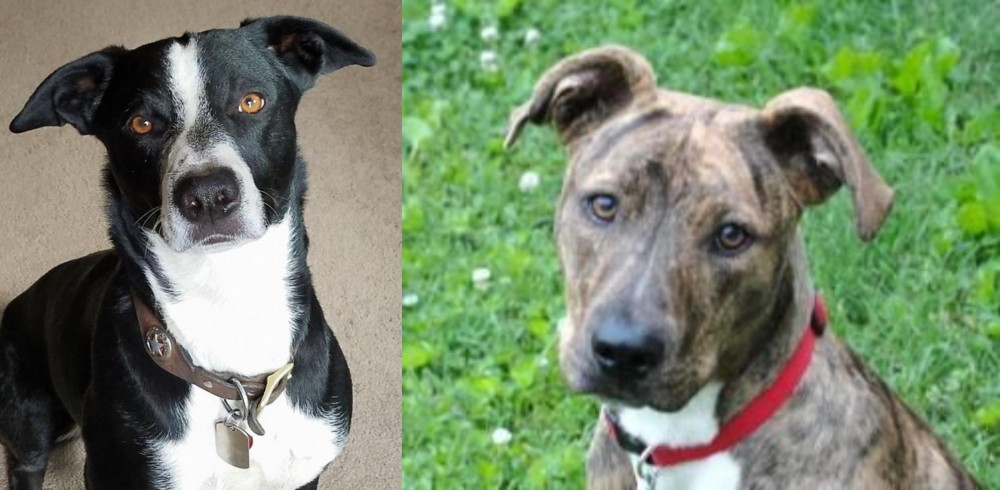 Both McNab and Mountain Cur are originated from United States. Both McNab and Mountain Cur are having almost same height. Both McNab and Mountain Cur are having almost same weight. Both McNab and Mountain Cur has almost same life span. Both McNab and Mountain Cur has almost same litter size. Both McNab and Mountain Cur requires Low Maintenance.
Both McNab and Mountain Cur are originated from United States. Both McNab and Mountain Cur are having almost same height. Both McNab and Mountain Cur are having almost same weight. Both McNab and Mountain Cur has almost same life span. Both McNab and Mountain Cur has almost same litter size. Both McNab and Mountain Cur requires Low Maintenance.
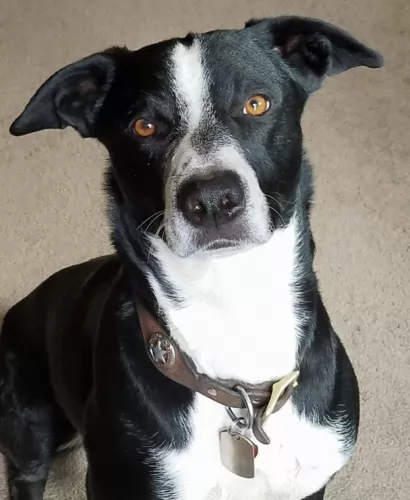 The attractive McNab dog is also known as the McNab Shepherd or McNab Collie. This very lively dog originated in the Mendocino region of Northern California, being specifically bred to withstand tough weather conditions and rough terrain.
The attractive McNab dog is also known as the McNab Shepherd or McNab Collie. This very lively dog originated in the Mendocino region of Northern California, being specifically bred to withstand tough weather conditions and rough terrain.
The dog is becoming popular outside of California now. A Scottish rancher with the surname McNab left Scotland and arrived in California in the 19th century. He crossed Scottish Border Collies with Shepherd dogs and the ranchers in California started using these dogs for herding livestock.
Today they are still being used as herding dogs in California and other countries. The dog isn’t recognized by the American Kennel Club. It was in 2014 that a group of McNab Shepherd breeders established the McNab Shepherd Registry so as to work towards the advancement of the McNab Shepherd.
 From The United States in the hound group comes the Mountain Cur. This breed was developed especially to “tree” their prey and to trail other smaller game. They treed and bayed larger prey like the wild boar and bears in the mountains and they trailed the smaller ones like the raccoon and squirrel. There are many types of curs and this breed is just one. Curs can be water dogs, farm dogs, hunting dogs and guard dogs. However, they are not great family dogs because they were born to hunt.
From The United States in the hound group comes the Mountain Cur. This breed was developed especially to “tree” their prey and to trail other smaller game. They treed and bayed larger prey like the wild boar and bears in the mountains and they trailed the smaller ones like the raccoon and squirrel. There are many types of curs and this breed is just one. Curs can be water dogs, farm dogs, hunting dogs and guard dogs. However, they are not great family dogs because they were born to hunt.
The Mountain Cur comes out of Kentucky, Tennessee, Ohio and Virginia. The ancestors of the American Mountain Cur came with European settlers almost 200 years ago. They worked with the settlers to hunt for animals that would provide them with pelts and meat in order to survive on the frontier. The breed became rare when the descendants of the settlers moved to the factories after the second world war.
The breed was brought back by four ambitious men who saved the Mountain Cur. They form the Original Mountain Cur Breeder’s Association of OMCBA in 1956. But they argued over the standard and 2 of the 4 left to form their own association: The Stephen Stock Mountain Cur Association. By 1957 the Mountain Cur Breeder’s Association formed but it took until 1998 for the Mountain Cur to be registered with the United Kennel Club.
The Mountain Cur is a tough, courageous dog as are all the Curs. They are willing to face large and ferocious prey. They are fearless watch dogs, using their trait of being quiet on the hunt to their advantage. The Mountain Cur wants nothing more than making you happy. They have been known to corner bears and even bulls. Given the independence and intelligence of the Mountain Cur it is important that the human be the pack leader, or the Cur will assume the role. If angry the Cur will growl and bite, so being the pack leader is vital for humans.
The novel “Old Yeller” was written about a Mountain Cur – a yellow shorthaired dog with a bobbed tail and terrier blood. Like all Mountain Curs “Old Yeller” hunted and treed prey, fought a bear and held onto the nose of a charging bull. The Cur was the first American purebred dog. Other early lines come from the Appalachian Mountains and near them in southern states. Mixing hounds and terriers created this tough, courageous dog whose tenacity and grit are second to none. Today the Mountain Cur has been split into four distinct breeds: the Mountain Cur, The Mountain View Cur, the Stephens Stock, and the Treeing Tennessee Brindle.
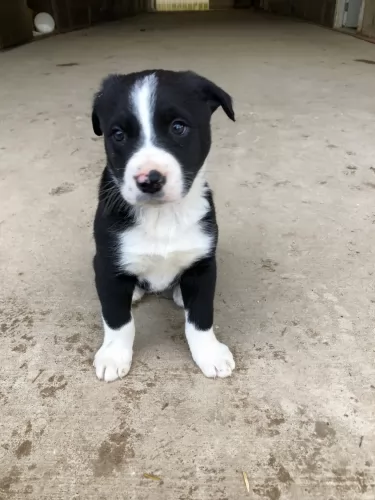 The McNab Dog is a medium-sized working dog. The appearance of this dog varies quite a bit. For instance you may come across a dog with erect ears or floppy ears or a long tail or one that is naturally bobbed.
The McNab Dog is a medium-sized working dog. The appearance of this dog varies quite a bit. For instance you may come across a dog with erect ears or floppy ears or a long tail or one that is naturally bobbed.
When it comes to size, you will find that between the males and females they stand at roughly 40 – 64cm and weigh anything from 14 – 30kg.
Most of these McNabs are black or red with white feet, white tipped tails and white markings around the face. The coat is weather resistant and fairly short and dense. You also get tri-colored McNabs. Eyes are usually a brown or copper color though you might find some with bluish eyes as well.
These are such intelligent dogs so with training and socialization you’ll find he is able to learn easily and quickly. He is a self assured dog, so he will respond well to an owner who is firm and fair, patient, kind and consistent.
He is best suited to life in the country as he needs lots of place to run around. If you don’t live on a farm, take the dog for long walks every day as he requires lots of exercise and mental stimulation. He is a loving family member too, getting along well with kids in the home as well as other pets. He is also a good guard- and watch dog, taking his job as protector of his human family very seriously.
 Bred to be a hard working hunter and protector, the Mountain Cur is rugged and stocky. They are muscular with strong neck, wide head and expressive dark brown eyes. Some may have blue or green eyes, but they will be darker instead of light. They have a heavy muzzle, high set short ears and feet that are catlike, muscular and strong. The Cur has straight legs, deep chests and 50% are born with the tail bobbed.
Bred to be a hard working hunter and protector, the Mountain Cur is rugged and stocky. They are muscular with strong neck, wide head and expressive dark brown eyes. Some may have blue or green eyes, but they will be darker instead of light. They have a heavy muzzle, high set short ears and feet that are catlike, muscular and strong. The Cur has straight legs, deep chests and 50% are born with the tail bobbed.
Their coat is short and heavy. The colors could be yellow, red, blue, brindle, black and brindle, yellow with white points, dark brown and red.
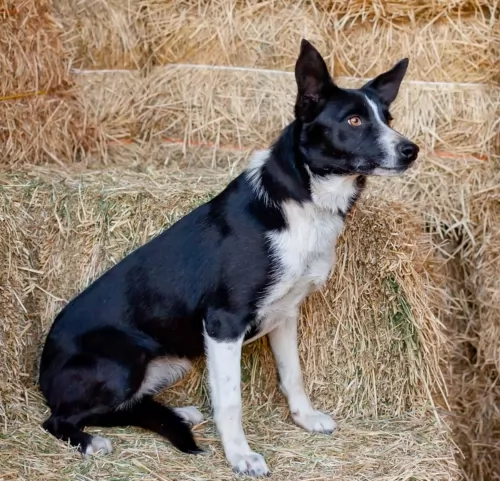 The McNab makes a splendid pet and is known to be even-tempered, being friendly and tolerant with his entire human family.
The McNab makes a splendid pet and is known to be even-tempered, being friendly and tolerant with his entire human family.
He gets on well with children in the home as well as other pets. He has always been a hard working pet and doubles up as being an excellent guard dog too. Those who have had the McNab as a pet say that you couldn’t get a more excellent family canine friend.
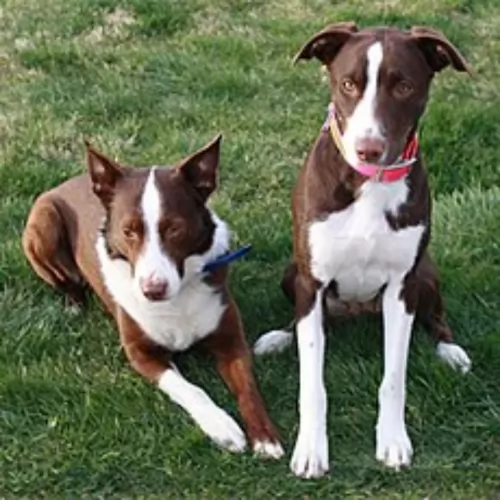 This dog doesn’t really have genetic health issues, but they can suffer with hip dysplasia, a problem that many dogs battle with, whether small or large, young or old.
This dog doesn’t really have genetic health issues, but they can suffer with hip dysplasia, a problem that many dogs battle with, whether small or large, young or old.
They can also suffer with epilepsy and an eye disease such as entropion where the lid of the eye is turned inwards. Check its ears and teeth regularly for infections and keep up to date with his vaccinations.
The McNab is a health dog breed so you aren't likely to face any of these common dog health issues.
 There are a few health issues that the Mountain Cur is susceptible to. They include:
There are a few health issues that the Mountain Cur is susceptible to. They include:
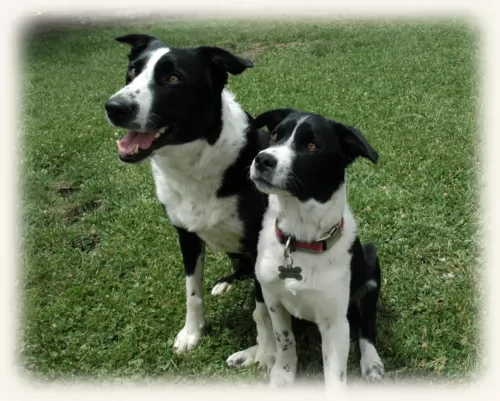 You can feed your McNab dog commercial dry kibble, but then you want to be sure its the best quality one. Buying inferior foods means that you’re getting a whole lot of ingredients in the food that are bad – sugar, salt, preservatives, fillers, colorants etc. Rather go for the best brands that will ensure that your dog is getting all the vitamins and minerals he needs.
You can feed your McNab dog commercial dry kibble, but then you want to be sure its the best quality one. Buying inferior foods means that you’re getting a whole lot of ingredients in the food that are bad – sugar, salt, preservatives, fillers, colorants etc. Rather go for the best brands that will ensure that your dog is getting all the vitamins and minerals he needs.
Homemade food is also important and foods such as boiled chicken, brown rice and pasta as well as cooked or raw vegetables chopped up and added to his dry kibble can make for a delicious, wholesome treat. It will be to his benefit if you can every now and then give him some raw meat as well. Make sure to see that he has a constant supply of fresh, cool water.
McNab Shepherds are very active dogs and they are going to require quite a bit of physical exercise as well as mental stimulation. They are dogs who have been used to herding livestock and he loves this busy life. It is why he wouldn’t be happy living in the city but is better suited to farm life or in a home with a large garden. Long walks and hikes will suit him as well as swimming and joining in every game there is.
The McNab is considered to be a low maintenance dog and grooming the short thick coat will be required twice a week. Always check around the eyes and ears as well as inside the mouth for problems and infections.
 Mountain Cure puppies should eat four bowls of high quality dog food in four separate meals each day until 3 months old. From three months to six months feed them 3 times per day and from six months to a year just twice a day.
Mountain Cure puppies should eat four bowls of high quality dog food in four separate meals each day until 3 months old. From three months to six months feed them 3 times per day and from six months to a year just twice a day.
The adult Mountain Cur would eat 3 cups of high quality dog food in one or two meals per day. Don’t overfeed them as they have a tendency toward obesity.
Athleticism
This breed is an active dog and he needs to get plenty of exercise. He needs daily exercise – daily walks – and enjoys canine sports like barn hunt and agility. They do well in field trials.